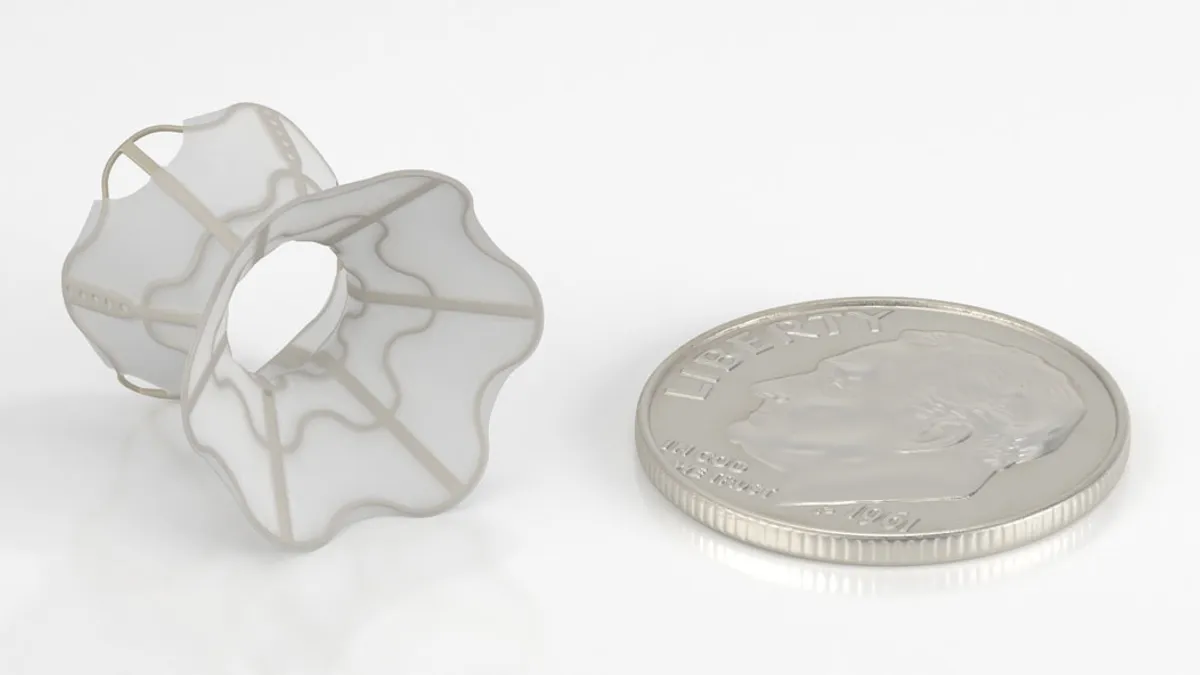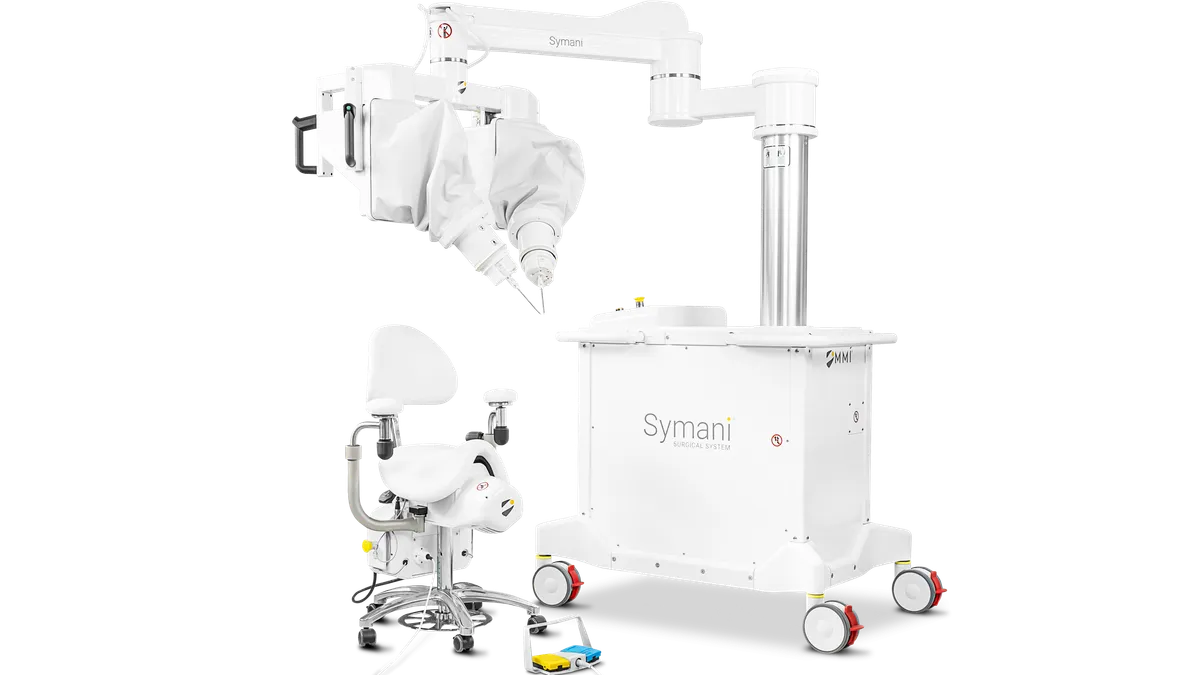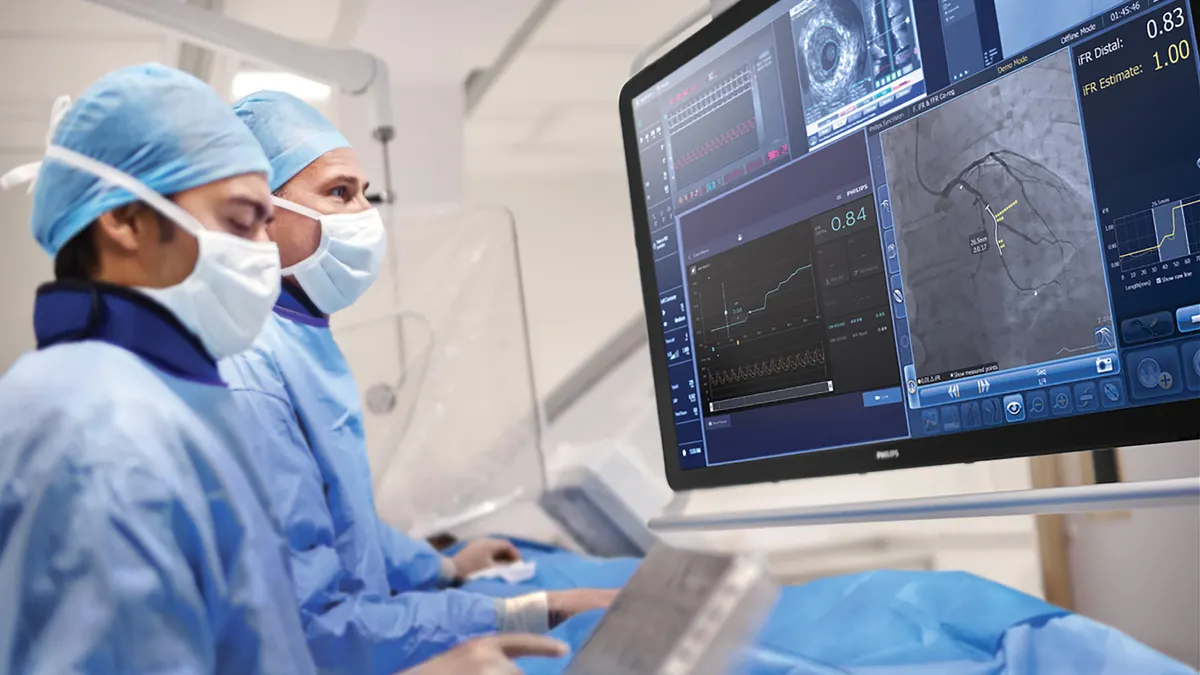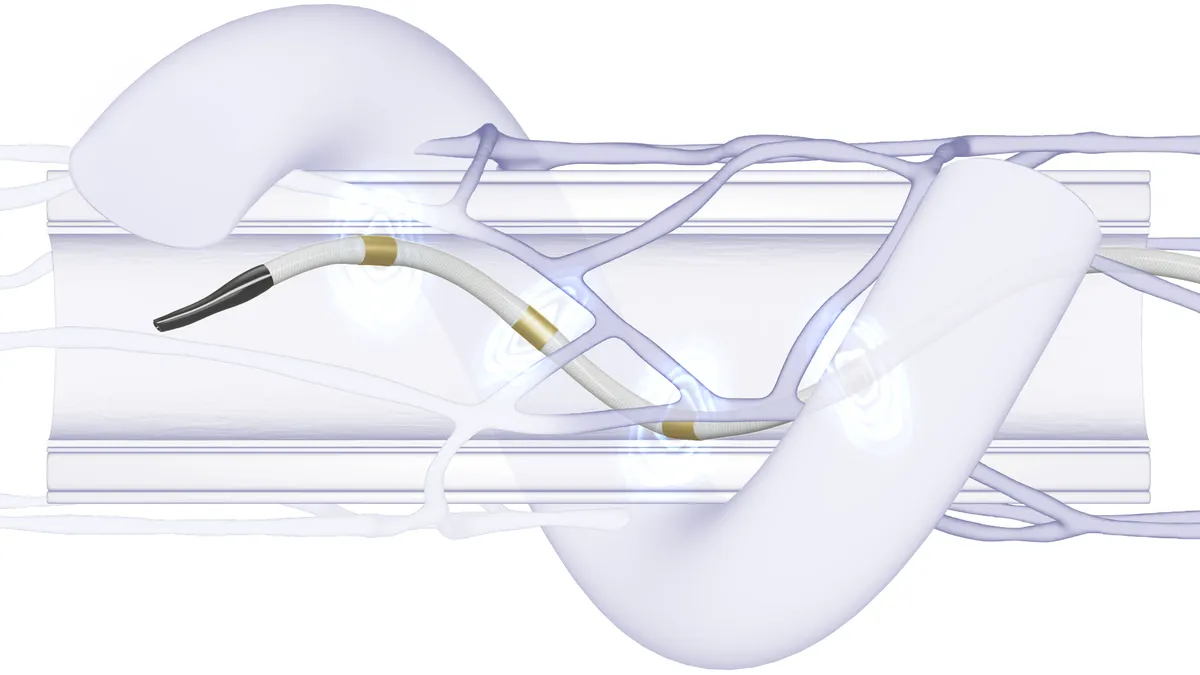Study results presented at a major medical meeting on Tuesday suggest progress for an experimental blood test meant to catch cancer early, when it might be easier to treat.
The results, from privately held testmaker Thrive Earlier Detection, come from an exploratory study, meaning they are not sufficient to support regulatory approval. But they are noteworthy because the trial enrolled around 10,000 patients, and showed the potential to detect cancers before they have spread in seemingly healthy people.
"More work has to be done to make sure that's the case," said Ravi Salgia, a medical oncologist at City of Hope National Medical Center in California. But Salgia, who doesn't have ties to Thrive, was impressed by the results. "This was quite innovative," he said in an interview with BioPharma Dive.
The data, along with an update from a massive cancer detection study run by Thrive rival Grail, are being shared at back-to-back presentations Tuesday afternoon at the American Academy of Cancer Research's annual meeting. The conference is being held virtually due to the coronavirus pandemic.
"This session will be remembered as when we saw the big data that says these assays should be broadly applicable," said Antoni Ribas, the president-elect of AACR and the director of the Parker Institute for Cancer Immunotherapy Center at UCLA, in a call with reporters before the meeting.
Thrive and Grail are at the forefront of an effort to prove whether liquid biopsies, which look for signs of cancer in the blood, can diagnose cancer at early stages, before tumors have spread and are harder to treat. Both companies have raised significant sums of money — in Grail's case, more than $1 billion — as part of a plan to change cancer care, adding blood tests to standard screening procedures like mammograms and colonoscopies. Their goal is to show that catching cancer early, with a blood test that supplements existing screening methods, can save lives.
"Earlier cancer detection gives us an opportunity to get to a point where the interventions have an intent to cure," said Thrive CEO David Daly in an interview. "That's a very big difference from what we experience today."
Still, the endeavor is fraught with pitfalls. Early traces of cancer may lead to problems, or nothing at all. A misdiagnosis, therefore, could result in unnecessary surgeries or drugs for people whose cancers might not have progressed — and thus hasten other health issues. Inaccurate results could be disastrous in other ways, too, giving patients a false sense of security, for example.
Both Thrive and Grail are running huge trials meant to show their tests can detect tumors, and ultimately, link their findings to positive health outcomes. Much more information is needed to show the tests can, as well as whether they're cost-effective and how they should be integrated into clinical care.
Each test uses a different approach. Grail's tracks a biological process called DNA methylation, which alters gene expression in cells. Thrive's test searches for DNA fragments and proteins shed by tumors into the blood, zeroing in on a group of markers that are well-known indicators of cancer.
Grail started earlier than Thrive. The company has already enrolled more than 120,000 patients, collectively, in a group of trials. Last year at the American Society of Clinical Oncology meeting, it posted results from around 2,300 patients in its preliminary study, Circulating Cell-Free Genome Atlas, which is meant to help the firm fine-tune its diagnostic for the studies that would lead to potential approval of its test.
Grail followed up with data from almost 7,000 patients in the CCGA trial — which had a mix of patients with and without cancer — that were later published in the Annals of Oncology. Results showed a single blood test could detect more than 50 cancer types with 99.3% specificity, meaning less than 1 out of every 100 patients were falsely given a positive result. The test also showed the potential to detect where a tumor is in the body.
Grail is sharing the latest update from its CCGA study at AACR, touting results from a subgroup of 303 patients suspected by their doctors of having cancer. The data show the test may "potentially accelerate diagnosis" for these types of patients, said Grail chief medical officer Joshua Ofman, in an email to BioPharma Dive.
For the first time, however, Thrive, which launched with $110 million in funding last year to advance the CancerSEEK test developed at Johns Hopkins University, has joined Grail in the spotlight. Unlike Grail, Thrive already has results from a study of people with no evidence or history of cancer — nearly 10,000 women between 65 and 75. The data were published in the peer-reviewed journal Science on Tuesday as well.
In the study, women had to be flagged by CancerSEEK twice for potential abnormalities in the blood in order for a cancer diagnosis to be considered. They were then given an imaging test to confirm the results and help spot, if tumors were thought to be present, where they were located.
If a tumor was found, patients were referred to cancer specialists for treatment, and asked to complete a follow-up survey a year afterwards. (Thrive said that the study used an old version of its CancerSEEK test, whereas an improved version will be used in further testing.)
The goal of the study was to see if the test could work in a real-world setting, provide reliable results and lead patients to care that could improve their outcomes. Thrive reported Tuesday that of the 96 women who developed cancer during the study, 26 were first identified by CancerSEEK. Sixty five percent of the those cancers detected were early-stage tumors that hadn't spread.
Another 24 cases were first found by traditional screenings, while 46 were uncovered though symptoms.
"It's exciting that this thing actually works," said Thrive co-founder and chief scientific officer Christoph Lengauer in an interview.
Thrive said CancerSEEK on its own was 98.9% specific, and even more precise when combined with an imaging test. The sensitivity rate, or, likelihood of avoiding false negatives, was much lower, some 27.1% for the test alone. Lengauer argued that, for many cancers — like tumors of the ovary, for instance — no screening tools are available, so even that lower number is better than what currently exists. "Any cancer you detect adds value," he said.
Nonetheless, "people are going to comment on the sensitivity," countered Salgia. "But it's the first of its kind, so I'm cautiously optimistic."
Lengauer says that no patients got an unnecessary procedure as a result of the test.
Still, there are notable limitations. As the Johns Hopkins study authors wrote in the Science paper, a longer follow-up period, which is ongoing, will likely unearth more cancers, and thus a higher rate of false negatives. Some patients didn't complete the trial, and the study didn't enroll a diverse population. Overall, the authors were careful to note that it's unclear whether the test truly helped any participant.
"All that we can confidently conclude at present is that a minimally invasive blood test can be safely used to detect several types of cancers in patients not previously known to have cancer, enabling treatment with intent to cure in at least a subset of individuals," the authors, led by Johns Hopkins professor of medicine Anne Marie Lennon, wrote.
Salgia added that various tumors don't shed enough key DNA and protein information into the blood. Multiple technologies — like the Grail and Thrive tests — might need to be combined, or tested against one another to provide the best results, he said.
"The more biomarkers that we can utilize that will help us detect these cancers early, the better we'll be," he said.
Critical questions still need be answered in future testing, too. Grail's ongoing trials are studying its tests in more diverse populations, with the goal of building the case for "clinical use and broad adoption," Grail's Ofman said. And in the roughly 6,200-patient PATHFINDER study, for example, Grail, like Thrive, will share test results with doctors to guide their patients' diagnostic workup.
"We are continuing to explore how our technology might be optimized for a diagnostic use," Ofman said.
Thrive, meanwhile, is in discussions with FDA regarding "the largest and most comprehensive study of its kind," said Daly, a trial meant to support approval of the newer version of CancerSEEK. He wouldn't provide details, though the company does have a breakthrough device designation for the test, which would speed its review if successful.
"That's the last piece of the puzzle," Daly said.
Ned Pagliarulo contributed reporting.






















